I’m at a point in this journey where I can now count by MONTHS so toasts to that! By the end of October, I will be five months post transplant!
More Appointments (9/15-9/21)
The rest of September was filled with more doctor’s appointments. I saw my pulmonologist at Evergreen. My lung function has been relatively unchanged, but she ordered an ECHO because I have been feeling short of breath. Although the most likely culprit is de-conditioning from being in the hospital for so long, my doctors generally err on the side of being more conservative because I’m an anomaly often. Luckily, the ECHO was all normal so that was a relief.
Now I just have to work on gaining my strength and endurance back. I got referred to home physical therapy with Providence. Because I’ve been in the hospital so many times this year, I’ve lost a lot of muscle mass so we are working on balance, core, endurance, and strength. In my first session, my PT Ryan said I should do shorter walks (~10 minutes) a few times a day so that I can slowly build up my endurance. In true Irene fashion, I was probably doing too much before. He made the analogy of driving a car. What I was doing was a stop and go scenario, whereas he’d like to see me drive slowly. The destination is the same, but how we get there is a little different.
I did also see my dermatologist, my infectious disease doctor, my gastroenterologist, and my ENT in the latter half of September just to touch base on where I’m at post-transplant.
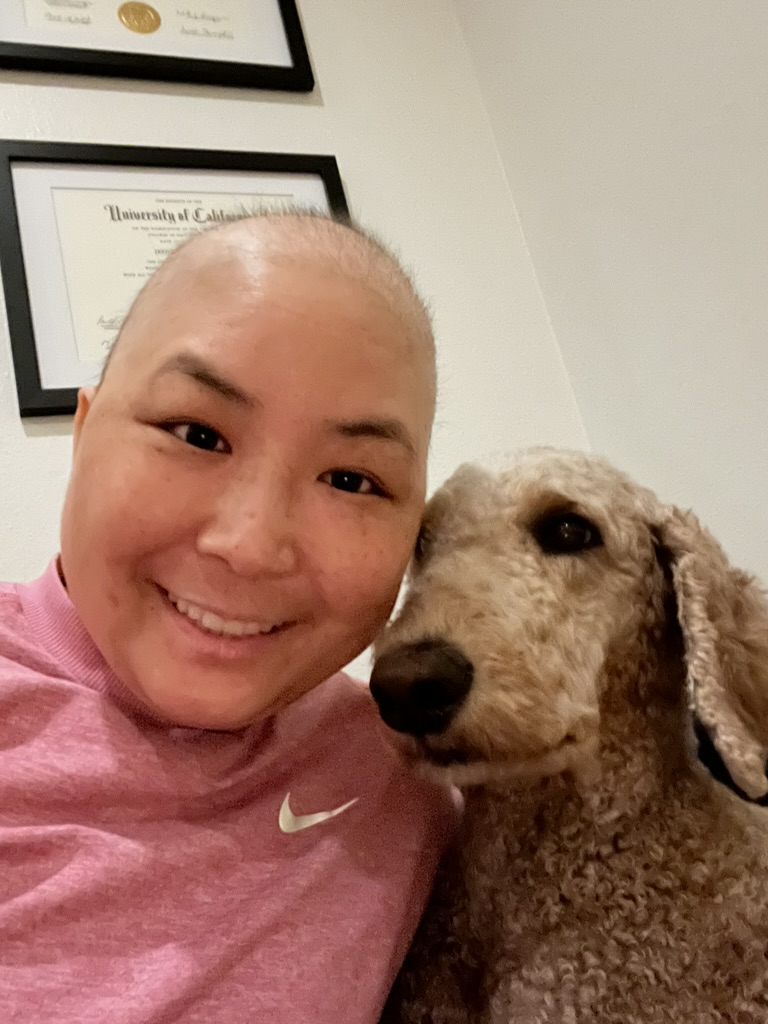
Gordon’s Visit (9/21-9/28)
My dad left the third week of September to go back to Orange County, and Gordon came up that same week to visit. I wish we could have done more, but I was feeling very fatigued the whole week so we mainly did walks around the neighborhood with Maple. I’m always so grateful to have Gordon’s support.
Hospitalization #3 (9/29-10/5)
Unfortunately, the day after Gordon left, I woke up with extreme fatigue. I wasn’t able to stand up, and whenever I would stand up, my heart rate would go up to 140. I also had a stomach ache; I had vomited a few times, and I had a lingering headache. I asked my mom to take me to the emergency room, which if you know me, I won’t go unless I have to. When we got to UW Montlake, I even asked for a wheelchair because I was worried I would faint.
In the weeklong stay at UW, I had test upon test done.
- CT chest/abdomen/pelvis: normal
- CT sinus: normal
- Ultrasound arm (my left arm started to swell): normal (no clots)
- Brain MRI: normal
- Endoscopy: no signs of graft vs host disease but it did show gastritis so they started me on a proton pump inhibitor
- Blood cultures: normal (but I was started on broad spectrum antibiotics for 3 days before the results finalized
Overall, it was a little inconclusive why I was feeling the way that I felt as all the tests turned out normal. I suspect that there was some side effect from one of the immunosuppressant (tacrolimus) medications I was taking, but it wasn’t definitive when we looked at objective testing. When I left the NIH at the end of August, I had discontinued an anti-fungal medication called posaconazole. Posaconazole and tacrolimus have a drug-drug interaction in that it increases the drug level of tacrolimus. The therapeutic goal that they wanted my tacrolimus level was between 5-10 (so this drug interaction was helpful), but because I stopped posaconazole, my tacrolimus level plummeted when I got home to Seattle. As such, over the course of September, I had continuously increased my tacrolimus dose and that correlated with my feeling crummier as the dose increased. Nevertheless, we still don’t have definitive answers (other than gastritis) but that was my best guess.

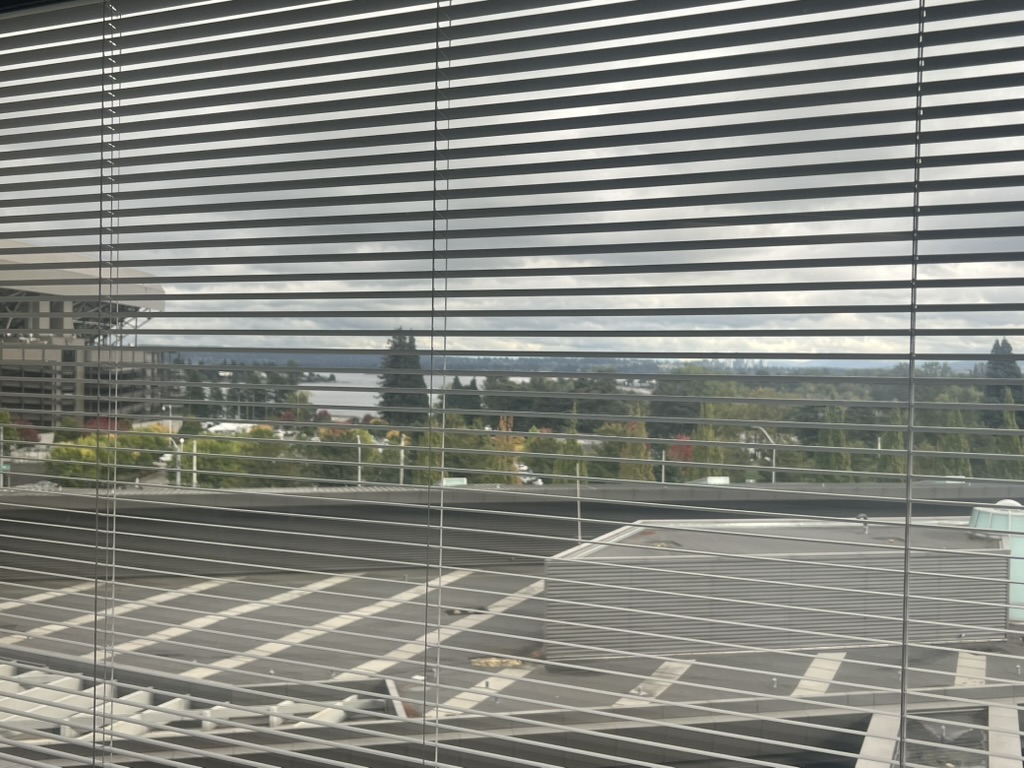
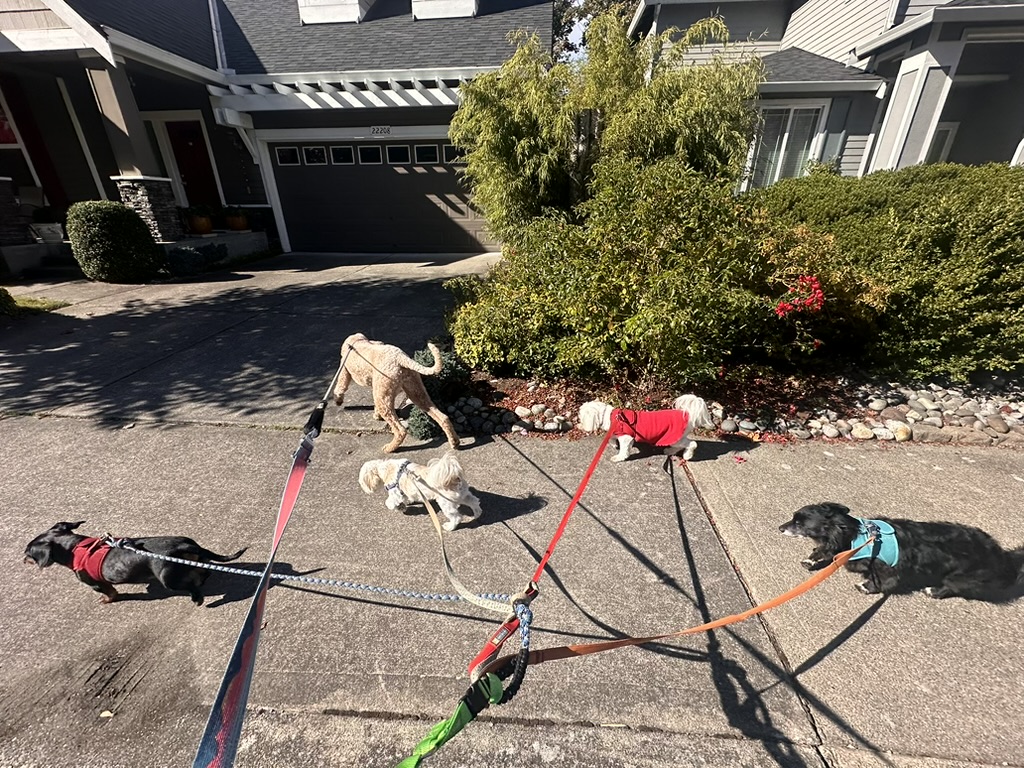
Recuperation (10/6-10/12)
After getting out of the hospital, there’s always a whole host of things to do to coordinate care in addition to just recuperating.
I had follow up appointments with my immunologist, Dr. Chau, who I’ve been seeing weekly. She has been working with the long term follow up BMT physician at Fred Hutch, Dr. Carpenter, to manage my care in this post-transplant time period.
They decided to look at the chimerism of my blood counts, meaning how much of my cells belong to me vs Gordon. The great news is that both my myeloid and lymphoid lines are 100% Gordon’s cells. While I don’t have that much quantity of cells yet, it’s reassuring that my “new” immune system is 100% Gordon’s and it will continue to grow stronger over time.
Because my chimerism test showed 100% donor (Gordon), Dr. Chau and Dr. Carpenter decided that I can start tapering my immunosuppression (tacrolimus) – yay! It will be a few month process to taper off completely, but it’s encouraging that I’ll continue to slowly peel off medications.
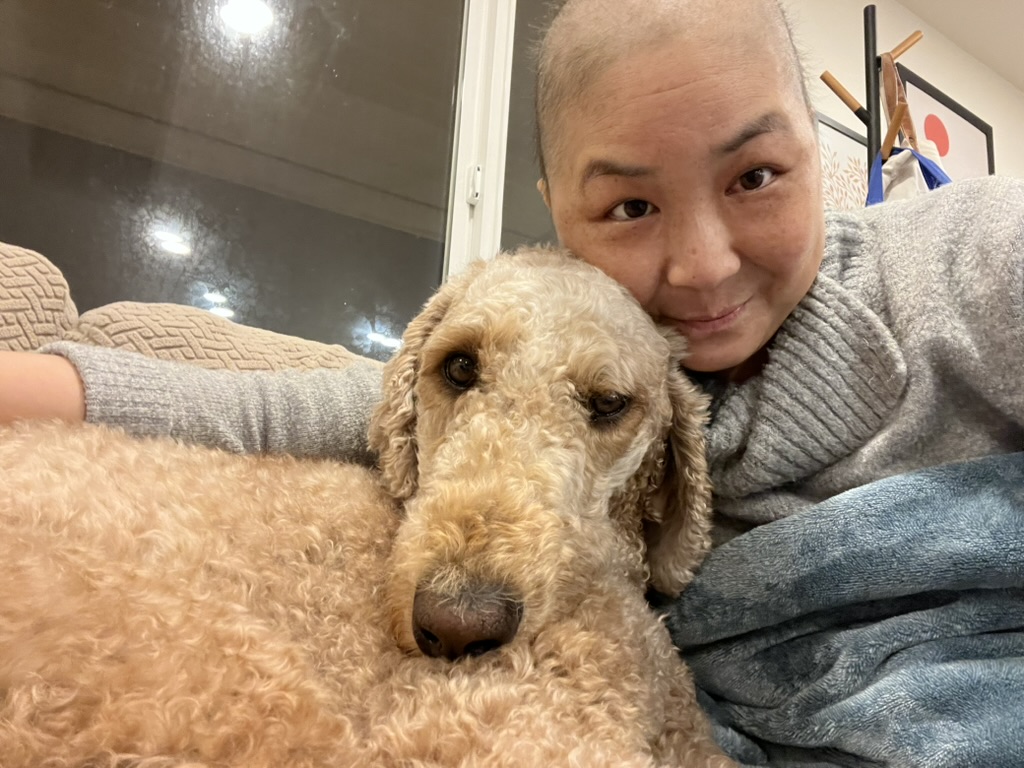
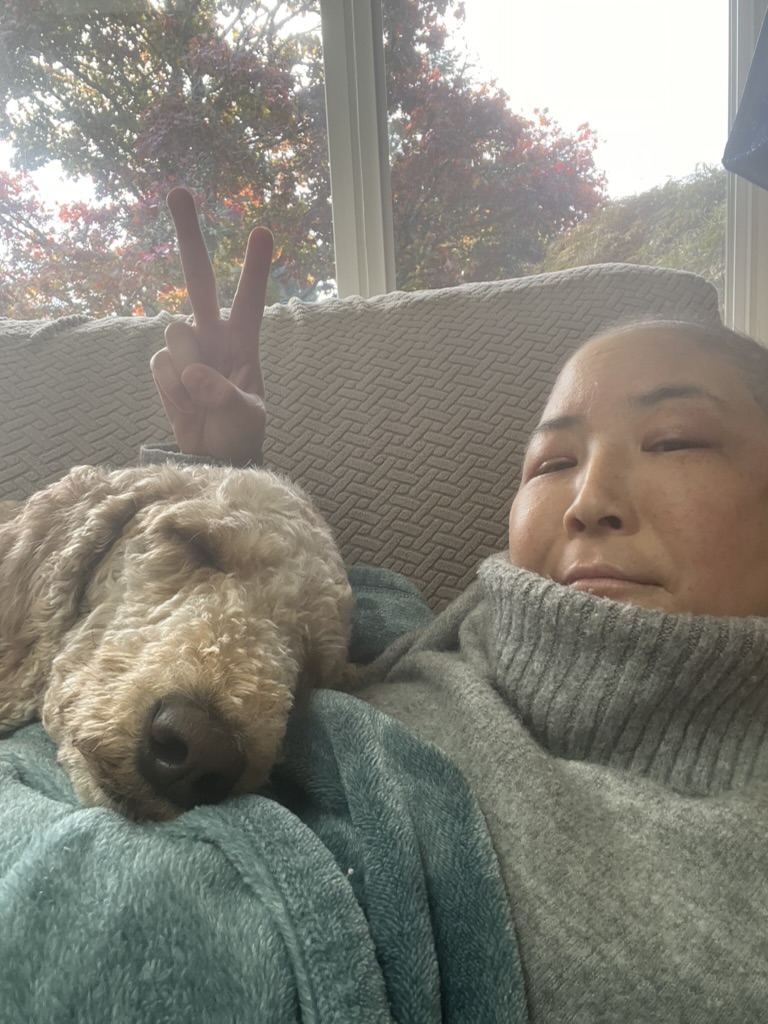

Worsening Symptoms (10/13-10/17)
The following week I started to feel worse again. My stomach wasn’t feeling great again, and I started to develop diarrhea multiple times a day. I also noticed that my legs, particularly my right leg, was pretty swollen and it felt really heavy to walk, as if I was dragging my feet.
Dr. Chau did order a stool test as well as a Doppler ultrasound to make sure I didn’t have a deep vein thrombosis (DVT), or a clot in my legs.
Hospitalization #4 with C. Diff (10/18-10/22)
Unfortunately, by Friday, I was feeling pretty terrible from multiple days of diarrhea and by the afternoon, I headed back down to the emergency room at UW Montlake again.
My mom had brought in a stool sample to Seattle Children’s earlier in the morning, and by the time I got to the ED in the afternoon at UW, it had resulted with Clostridioides difficile (C. diff), a bacterium in the gut. It definitely makes sense in terms of timing because when I was admitted two weeks prior, they take blood cultures as part of a comprehensive workup and started me on broad spectrum antibiotics, killing the good bacteria that’s in my colon. While everyone has C. Diff in their gut, its population is controlled because you have your healthy microbiome to keep it in check. In my case, the broad spectrum antibiotics killed all my good bacteria, allowing the C. Diff population to get out of hand. The silver lining in this situation though is that C. Diff is very much treatable so I will be on fidaxomicin for 10 days.
After a few days of antibiotics at the hospital, my gut slowed down. I was feeling better by Sunday, and the team discharged me a few days later. I was also able to get my IVIG done on Tuesday which will help boost my immune system too.
I’m hoping that this all blows over after my 10 day course of antibiotics, but the attending physician in the hospital (who happened to be the same one from my last hospitalization) did say that while he hopes he doesn’t see me again in the hospital, the first year of transplant is very bumpy and it would not surprise him if other things popped up. While not something I wanted to hear, I’m thankful that he set that expectation.
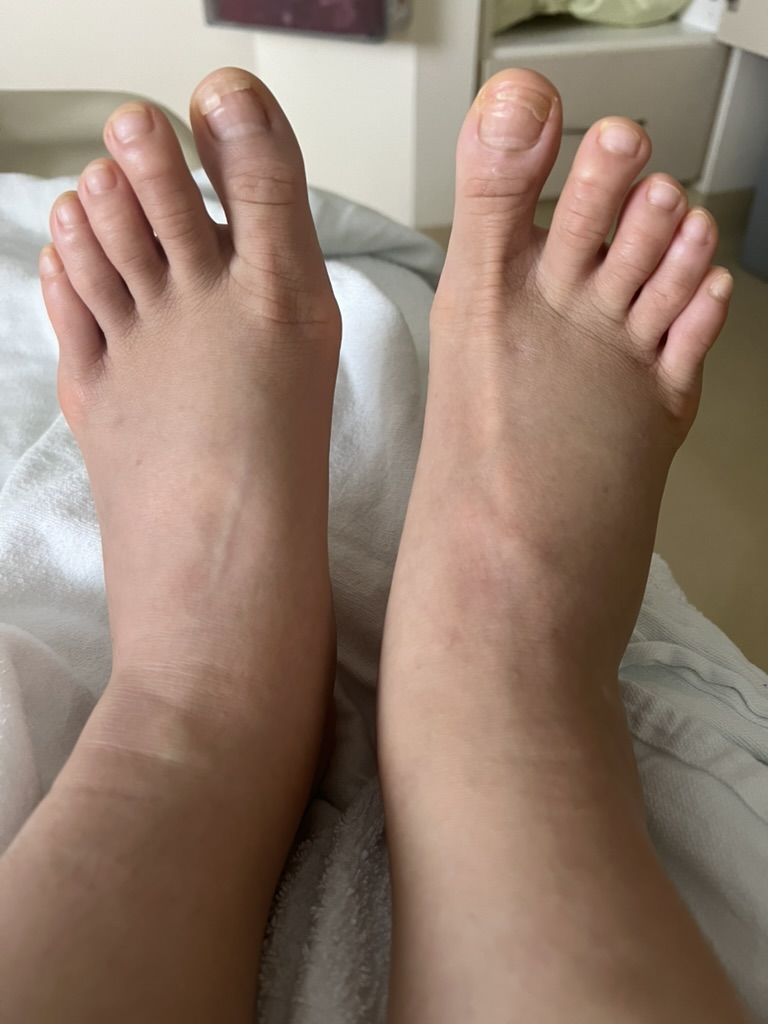
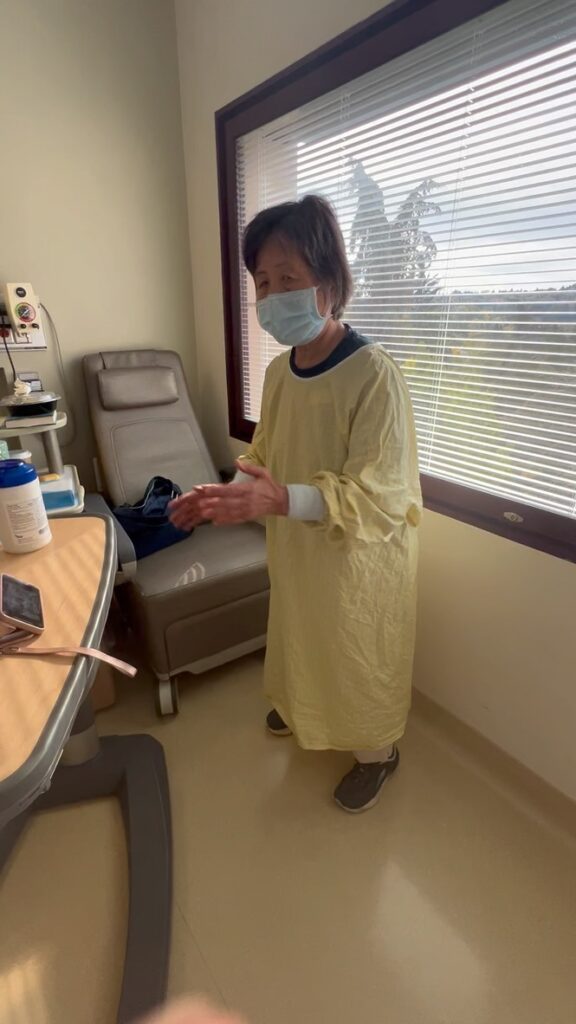

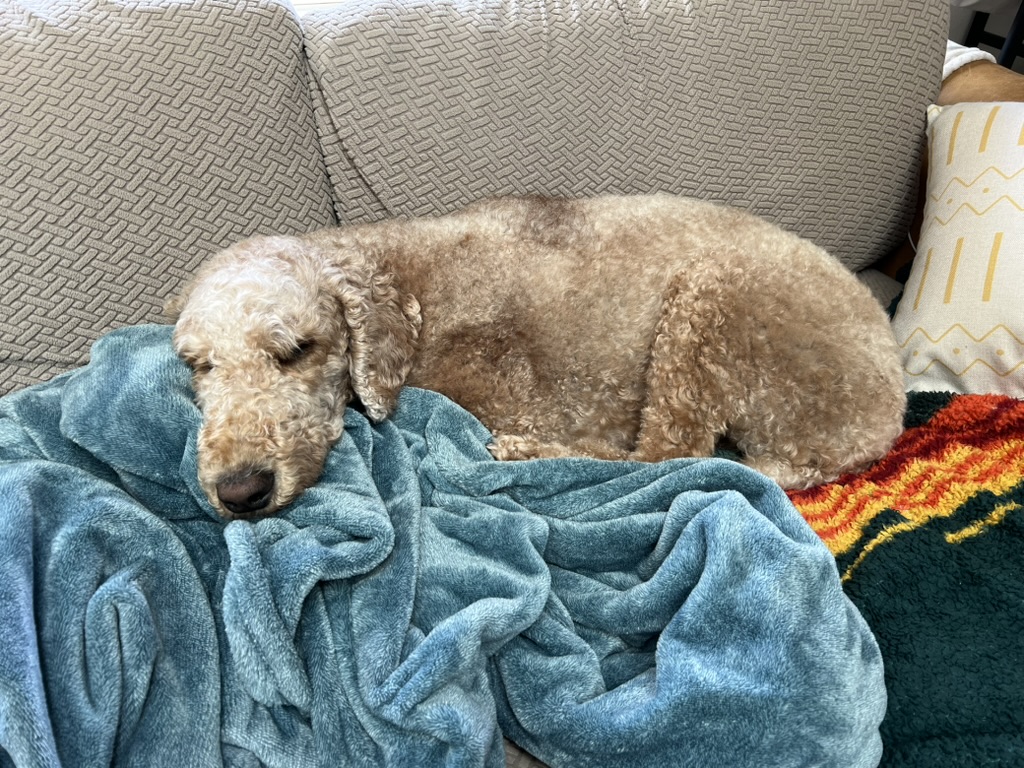
Feelings & Frustrations
Emotional rollercoaster of going in and out of the hospital
I’ve been home in Seattle now for almost two months, and I’ve been having all sorts of feels. I thought I’d be able to see more of my friends now that I’m home, but that hasn’t been the case.
I don’t think I was adequately prepared for the emotional roller coaster that is a bone marrow transplant but at the same time, I don’t think there’s anything anyone could have said to me to prepare me for this experience. There is a stark contrast between my expectations for this experience and the reality of the situation. It often feels like one step forward two steps back. It’s great that my chimerism results are 100% donor and that I have not had any signs of GvHD, but I’ve also been in the hospital 4 times in the last 5 months and that has taken a toll on me mentally, emotionally, and physically.
Every time I go back into the hospital, I feel like all the work I had done to increase my endurance or gain some strength all goes away. It’s harder each time I’m readmitted to find silver linings in the situation. I think the other part of it is that even though I’m five months post-transplant, this whole process has felt a lot longer. I’ve been waiting for a transplant since late 2022 and the other bumps in the road have made this whole process feel much longer than 5 months. I know that I’ll get there eventually, but my impatience with this whole ordeal sometimes gets the best of me.
Inefficiency of the healthcare system
Perhaps the biggest frustration with this experience since coming back from the NIH has been navigating and coordinating my care. At the NIH, the BMT team was my primary team. The patient care coordinator would do all of the behind the scenes coordination. I would receive a text or call to be on X floor to see Y specialty on Z date. All I had to do was show up.
Now that I’m back home in Seattle, I am the patient care coordinator, which most people don’t realize is a full time job. I am working with 5 different systems at this point so it’s a lot to keep track of.
- Seattle Children’s: Dr. Chau, my immunologist is my primary point person that I see weekly. The great thing about SCH is that they have a lot more support and I know the nurses and medical assistant well at this point. The frustrating part though is that if Dr. Chau orders any test other than lab work (i.e. an ultrasound or an MRI), it has to be faxed over to UW because I cannot get these tests done at SCH since I’m an adult. You’d think there would be better technology to transmit these orders but it has to go through fax. What would be most ideal is that the systems are connected, but that’s also not the case.
- UW/Fred Hutch: The rest of my doctors are at UW but because Dr. Chau has been my primary point person, a lot of times the tests she orders won’t show up in the UW system in real time. There’s a lag of a few days, and in my instance, sometimes I don’t have the luxury of having a few days for things to pop up for other docs. The best example is from my most recent hospitalization. The stool sample I sent into SCH resulted with C. Diff, and while it showed in my portal, the UW emergency doctors were unable to see the result. Dr. Chau did speak with the ER docs, but the ER docs ended up ordering the test again.
- Evergreen: My pulmonologist used to be at UW but moved to Evergreen in Kirkland last year. Because she’s known my case for 6 years and works well with the rest of my specialty doctors, I decided to stay under her care. However, whenever she orders a test (chest CT, ECHO), she needs to fax the order over to UW and that process can take time for it to reach UW, get entered into the system. Often times, these referrals get lost in the system so I’m on the phone calling between UW and Evergreen to make sure the fax went through.
- Providence: Providence coordinates both my home infusion (with orders written by Dr. Chau at SCH as well as my home physical therapy. While all under Providence, the home infusion and physical therapy are separate departments. Every time I am in the hospital, I need my UW PCP to re-fax a resumption of services to PT and Dr. Chau to fax home infusion to resume IVIG therapy. You would think that these things all happen automatically, but the majority of the time, it does not happen that way. It usually involves something like this: me calling UW internal medicine, leaving a voicemail for the team, waiting for UW to fax the order over to Providence, waiting for Providence to re-enter the new order for services, and then I can schedule with PT.
- NW Eye Associates: Fred Hutch works predominantly with this practice for BMT patients to monitor graft vs host disease of my eyes. After I see the optometrist here, they have to send their notes over to Fred Hutch so that the BMT team is aware of any issues.
Ultimately, these systems are not connected or integrated as seamlessly as you’d hope so I spend a lot of time playing the middle man, making sure things are faxed, received, scheduled, etc.
Loneliness of this experience
While I have immense support from family and friends, this is an incredibly lonely experience. All of the hobbies that I had prior to transplant – playing tennis, having dinner with friends, woodworking, hiking, etc. – I’m not able to do right now. Most days, I’m on a schedule where eating is my primary responsibility. I eat breakfast, I walk Maple down the street, I lie down on the couch, I eat lunch, I take an afternoon nap, I walk Maple down the street, I eat dinner, I get ready for bed. While this seems like such an easy day, it’s incredibly fatiguing for me at this point.
I’ve had to find a lot of solo activities (mainly doomscrolling but I’m working on getting into reading books from the library), but also recognizing that sleeping and lying on the couch is sometimes all I can do in a day. It’s so opposite of the person I was before transplant and I cannot wait for the day where I feel like I have enough energy again to do the things I love.
Do you want some Audio Drama or book recommendations to help with the long days?
I’m trusting that day will come, Irene! You’re getting there day by day, month by month. I’m sorry for the roller coaster and the downs that make it feel so slow. And I know it’s not much consolation, but your view from that UW Hospital room is unbeatable! I’ve been there.
Love and hugs ~